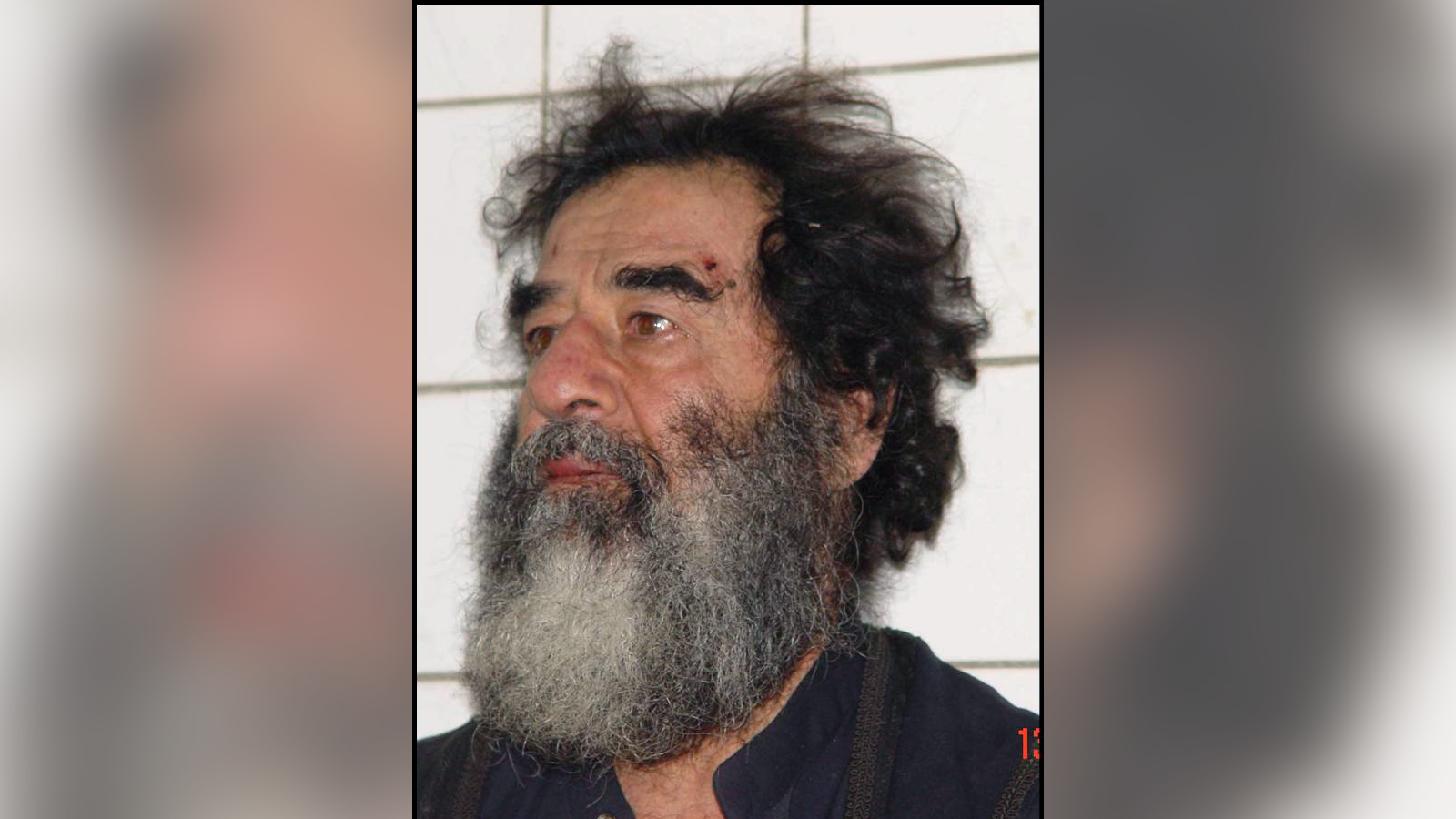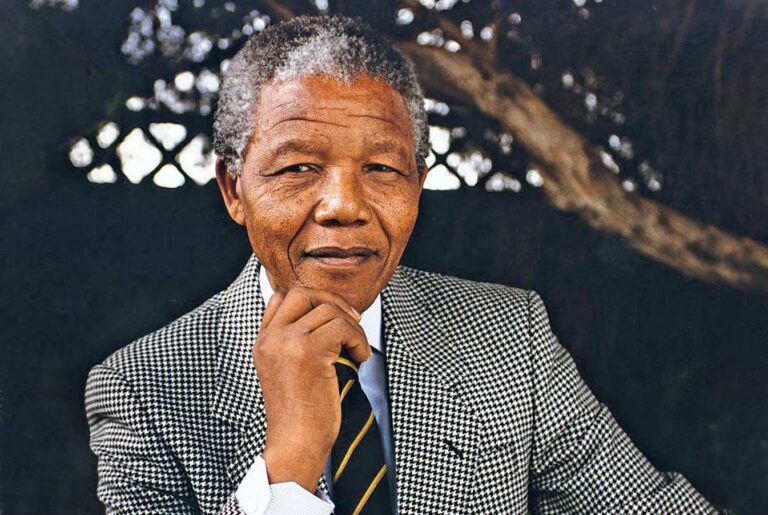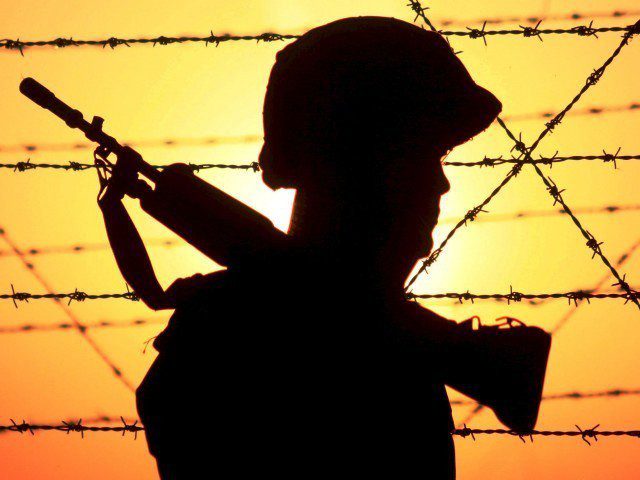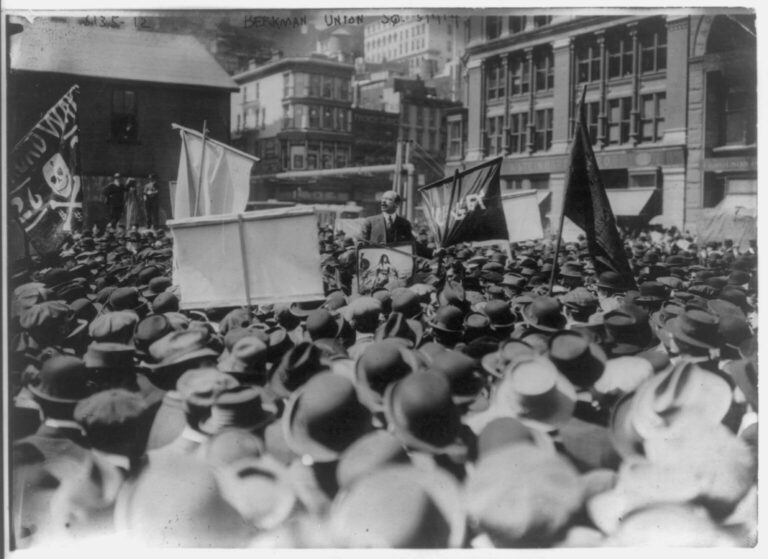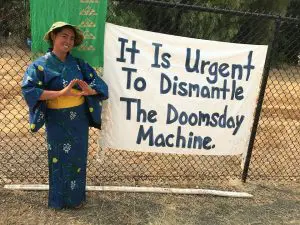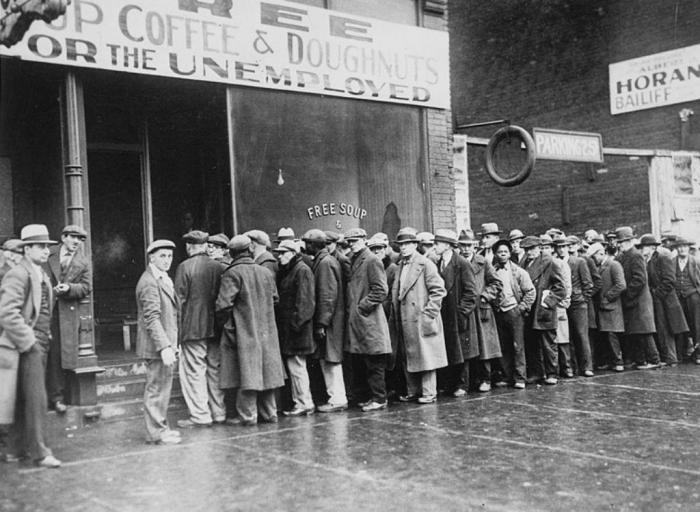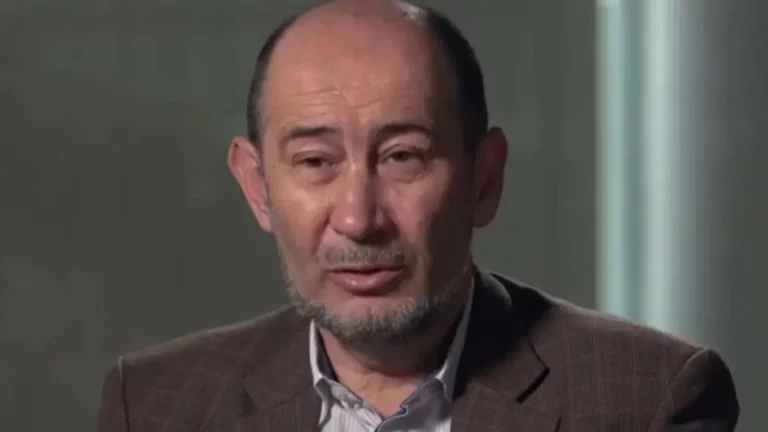The Iraqi Pissing Match – John Kiriakou on RAI (pt 4/10)
This is an episode of Reality Asserts Itself, produced on April 21, 2015. On Reality Asserts Itself, former CIA official Mr. Kiriakou says that the Iraq War was motivated by the Bush administration wanting to send a message – no regime can defy U.S. power and survive.
PAUL JAY, SENIOR EDITOR, TRNN: Welcome back to Reality Asserts Itself on The Real News Network. I’m Paul Jay. We’re continuing our series of interviews with John Kiriakou. Thanks for joining us.
JOHN C. KIRIAKOU, FMR. CIA OFFICER: Happy to be here.
JAY: So I’ve introduced John at the beginning of every segment. If you look down below the video player, you will see a whole biography. So I’m not going to do it again. Okay. So you leave Bahrain, and you’ve started understanding that this fight in Bahrain, as you’ve just put it in the last segment, was really rich versus poor. This whole thing about it being fundamentally religious, Shia-Sunni, was not true, that this was terrible violations of human rights. And even though you could see it and the U.S. ambassador could see it and you were reporting back to the State Department and you’re CIA, and, obviously, back to the president, the Fifth Fleet, port of the Fifth Fleet, and the arms sales trump the human rights issues, and so on and so on. So you start–it starts to eat at a bit of your Americanism, and you leave and you go back to Arlington, and you’re back on the Iraq file. This is at the height of sanctions. So a question I’ve always had about this period is: why didn’t the United States give a damn, in the sense of leave Saddam alone? There’s dictators all over the world; who cares about this one? So he suppresses his people; that’s never been a big deal for the United States, really. He still has to sell his oil on the world market; you have access to the oil. What is all this sanctions and everything about?
KIRIAKOU: It was a pissing match between Saddam Hussein and a series of American presidents is what it really came down to. The first President Bush, President Clinton, the second President Bush wanted Saddam to do what they told him to do, and he was unwilling to just fall in line.
JAY: So he had to say uncle.
KIRIAKOU: He had to say uncle.
JAY: So how many people died ’cause he would say uncle?
KIRIAKOU: Oh, untold tens of thousands of people died. Whether it was as a result of sanctions or fighting or American airstrikes or whatever it was, thousands and thousands of people died just because of this personality conflict, for lack of a better term, between Saddam Hussein and three American presidents.
JAY: It’s crazy. There’s an interview with Lyndon Johnson near the end of his presidency in the Vietnam War, and he’s asked, why do you keep continuing this? What is this about? And he actually, apparently, pulls down his fly and brings out his organ–as this is how it’s described by one of his biographers–and he says, this is what it’s about.
KIRIAKOU: I believe that story.
JAY: At the time, how much do you understand that’s what it’s about, that it’s just a pissing match?
KIRIAKOU: I did understand it, and I grew frustrated with it. I grew frustrated with American policy toward Iraq and decided I’ve got to do something completely different. And that’s when I began looking for new job.
JAY: Within the CIA.
KIRIAKOU: Within the CIA.
JAY: And you go to Greece.
KIRIAKOU: Well, there was a position advertised that called for either a Greek or Arabic speaker. And it turned out that at the time–.
JAY: You know what? I’m sorry. I want to go back to where you said you can believe the Johnson story. Alright. So you’re a professional analyst. You’re analyzing what’s going on in Iraq, what should be done. I mean, it sounds like you’re coming to the conclusion, like, all of this is unnecessary in terms of real U.S. national interest. You’re saying this is essentially a pissing match. I mean, and I don’t think we should make that too banal. What I mean by that: it isn’t just a personality thing. I think ingrained in U.S. foreign policy is this, that we must make everyone believe we are stronger than they are. And it’s sort of like a loan shark. I said this in another interview. If you let someone get away with not paying back their interest that week, then everyone else isn’t going to pay back. That’s the theory. So you’ve got to break some knees, and if somebody’s really defiant, for that, for its own sake, you have to prove you can put that person in their place. But, as an analyst, you can see this isn’t good foreign policy.
KIRIAKOU: No, it was quite bad foreign policy. It was a waste of resources and people were getting killed. But at the same time, it goes beyond the president and the State Department and the Defense Department. You have congressional leaders hammering the president for being weak on Iraq and to bomb more and to fight harder and to make sure that Saddam is humiliated. And so you have this spiral of bad policy that you just can’t get out of.
JAY: And how much do you think that for certain sectors of the economy–’cause it’s certainly not true for all of the economy, but if you’re in fossil fuels or if you’re in military production and associated high tech, war’s damn good for business.
KIRIAKOU: It is good for business. And when you think about it, though, if we–. Look at it this way. We bought much, much more Libyan oil than we ever bought Iraqi oil. Iraqi oil mostly went to Europe. And when Libya collapsed and their oil industry came to a screeching halt, it had virtually no effect on our own economy. Virtually none. So did we really need to hammer the Iraqis like this over more than a decade to protect the oil? We really didn’t need the oil anyway.
JAY: But by fossil fuel I mean as long as there’s conflict, the price of oil’s high.
KIRIAKOU: Mhm. It stays high.
JAY: We know big oil companies make more money the higher the price of oil.
KIRIAKOU: That’s right.
JAY: People selling arms, the more stuff you blow up, the more stuff you’ve got to buy to replace it, and the more threat of conflict, the more–.
KIRIAKOU: Right. It’s good for business.
JAY: How much do you think that drives U.S. foreign policy?
KIRIAKOU: I think that’s an integral part of U.S. foreign policy. I really do. You know, we’ve got not just arms manufacturers, but now we have drone manufacturers, for example, that are having to compete against Israeli drones and Chinese drones and Russian drones. So we need for there to be conflicts so we can sell our drones. It’s the same with aircraft. You know, Boeing and other aircraft manufacturers would go under if we couldn’t sell F-15s and F-16s and F-whatever they are, 23s, the new ones that are coming out, both for our own military and for foreign militaries. So war is good for business.
JAY: I mean, if you’re thinking of the current situation, the more potential conflict there is between the Saudis and the Iranians, that’s a gold mine If you’re selling arms.
KIRIAKOU: Especially when the Saudis have a bottomless pit of money that they can dip into. The same with the Qataris and the Emiratis. It’s very lucrative for us to be in the Gulf.
JAY: Now, let’s go back. As you’re leaving, you go back to Arlington. You’re back on the Iraq file. You’re starting to see how crazy all this stuff is. Are you starting to question now?
KIRIAKOU: Yeah, now I’m starting to get frustrated. This policy is broken, it’s not working, and there’s no hope of changing it. So I decided to do something completely different.
JAY: Okay.
KIRIAKOU: And that was operations.
JAY: So–oh. Now you’re going to leave analysis go to operations. Now, this to me sounds a little contradictory. You’re starting to see the pattern of some of the underlining rot of the policy, but now you’re going to go over to operations, where some of the dark stuff gets done.
KIRIAKOU: Yeah, but some of the dark stuff was meant to save and to protect American lives, and that’s really what I wanted to focus on. I ended up going to Greece and spending two years in Greece. And my job in Greece was to try to disrupt terrorist attacks committed by a group that was called Revolutionary Organization 17 November. 17 November had murdered the CIA station chief in Athens in 1975. They murdered two defense attaches. They had shot and severely wounded several embassy officers. And they murdered an American Air Force technical sergeant who was just–the poor guy was just in the wrong place at the wrong time. And they had murdered almost two dozen Greek nationals as well, important people–cabinet ministers, the heads of the central bank, university professors, prominent business leaders. And I thought, this is something I could sink my teeth into.
JAY: But when you decide to join ops, you don’t know that’s where you’re going.
KIRIAKOU: Oh, yeah.
JAY: You do?
KIRIAKOU: Oh, yeah.
JAY: Oh, you know it’s Greece.
KIRIAKOU: I applied specifically for that job.
JAY: And what’s the training?
KIRIAKOU: It was all of the traditional operational training at–.
JAY: Tradecraft they call it. Is that right?
KIRIAKOU: Tradecraft, right,–
JAY: Yeah.
KIRIAKOU: –at a facility they call “the Farm”, which is located south of here.
JAY: And how long is the training?
KIRIAKOU: Well, because I was midcareer, I didn’t have to go through what they called CIA 101. So I went straight into the shooting and the car crashing and the explosives training. And that lasted four and a half months.
JAY: What was the most interesting of that training?
KIRIAKOU: I found that I had a real knack with firearms. On my first day in the firearms or the weapons training class, the instructor asked, who in the room does not own a gun? And I put my hand up and I looked around, and mine was the only hand up. And he said, you don’t own a gun? And I said, truth be told, I’ve never actually touched a real gun. And he said, oh my God, we’ve got to start at the beginning. Well, I ended up finishing the class with the highest score. I had a steady hand, and I just had a knack for it. And then we took a class called “Counterterrorist Driving”. I had a knack for that, too–you know, 60 miles an hour backwards, crashing through roadblocks. You learn a lot, and it could potentially save your life.
JAY: Now, when you’re learning how to shoot, you realize you’re learning how to shoot people,–
KIRIAKOU: Absolutely.
JAY: –not to shoot targets.
KIRIAKOU: Absolutely.
JAY: You’re okay with that.
KIRIAKOU: I had to be. If somebody puts a gun in my face with the specific intent to blow my brains out, I’m going to kill him first.
JAY: But that’s certainly not all. I mean, CIA is known for assassinating and shooting people who aren’t necessarily shooting at you.
KIRIAKOU: Completely, totally different situation. That was not my thing.
JAY: But you could be ordered to do that.
KIRIAKOU: No, I could not be ordered to do it.
JAY: Why?
KIRIAKOU: Because I wasn’t trained for it. And it’s not something you can be ordered to do. In the event that there’s an assassination that takes place under these new executive orders that presidents Bush and Obama have signed, there’s a paramilitary group that’s perfectly willing to do that. That’s not what the average Joe case officer does. The average Joe case officer, of which I was one, is overseas to recruit spies to steal secrets. That’s the job.
JAY: So the gun, in theory, is–
KIRIAKOU: It was for self-defense.
JAY: –to defend yourself if they figure out–
KIRIAKOU: Yeah.
JAY: –they’re coming after you.
KIRIAKOU: It was for self-defense.
JAY: Which in Greece they did.
KIRIAKOU: They did.
JAY: There was attempts to shoot you. [incompr.]
KIRIAKOU: There was an attempt.
JAY: What happened?
KIRIAKOU: Well, in the end, instead of killing me, the group killed the British defense attaché who was a neighbor of mine. Our backyards connected. And I left for work one morning a little bit later than I normally did. I tried to leave at a different time every day, and I took a different route every day, but I slept in this one day. And so I thought, ah, damn it, I’ll just get on the main road, which you’re never supposed to do, and just go straight to the embassy. My house was in a neighborhood called Kifissia, which is exactly ten miles north of the center of Athens. And there’s a main road, Kifissias boulevard, that goes straight from Kifissia directly to the embassy. You never have to get off the road. So, of course, that’s the road I never wanted to take, because there are Jersey barriers on both sides, and if somebody was going to kill me, there’s nowhere for me to run. I can’t crash through the concrete barrier to get away. So I would always take neighborhood routes all the way into town. But I slept in this one day, and I thought, I don’t have the extra 30 minutes to wind my way through the neighborhood; I’m just going to get on Kifissias boulevard. But it’s a parking lot. And, you know, Athens has crazy traffic, you know, Cairo, Bangkok kind of traffic, but this was heavier than even that. So I put on the radio and I heard an announcement to avoid Kifissias boulevard because there’s a traffic incident at Psychiko, which is closer to the city. And I thought, boy, I’ve never heard an announcement like that. But I’m already committed to Kifissias boulevard, and I can’t get off ’cause of these Jersey barriers. So I stayed on, and I’m inching my way down the mountain into Athens. And then about–.
JAY: You’re alone in the car?
KIRIAKOU: Alone in the car.
JAY: Why?
KIRIAKOU: I was always alone in the car. Armored car. Fully, heavily armored. And I have two guns on me. And in case everything goes to shit, I have a switchblade as well. So about a half an hour later I hear, “Avoid Kifissias boulevard because there’s a police incident at Psychiko.” And I thought, that’s odd. I wonder what that means? And then, finally, another half hour into it, “Avoid Kifissias boulevard because there’s a terrorist incident at Psychiko.” And I thought, oh, for God’s sake. So I’m inching my way down the mountain, and I see a white car, a Rover, a British Rover, and all of the glass is blown out, and there’s what looks like blood on the door and on the hood. And I looked at the license plate number, and it started with YBH. Well, all of our license plates began with the letters YHB, and I thought, oh my God, some poor Greek was killed because 17 November thought it was one of our cars. But then I remember that YBH was the British Embassy’s license plate numbers, and I recognize the Rover as belonging to Stephen Saunders, the newly arrived British defense attaché. So I called the office and I told them what I had seen. They didn’t know what it was. They knew something had happened, but they didn’t know what it was. I said, it’s Stephen Saunders’ car. I said, there’s blood everywhere. So they called the British Embassy. The British said he had been shot. It turned out he’d been shot with a G3, with a tank-piercing round. It blew his hand completely off. And then he was shot multiple times with the same gun that was used to kill Dick Welch, our station chief, in 1975, called the Welch .45. 17 November used the Welch .45 in most of their assassinations to send a message. So Saunders was taken to Red Cross Hospital just a few blocks from the embassy, and he died there about three hours later.
JAY: Forget 17 November as a group. But you can understand the rage against the United States, ’cause most people understood there wouldn’t have been dictators without the United States.
KIRIAKOU: Sure. Absolutely. Absolutely. I have always believed that the military dictatorship was installed by the United States. And we know now, because of the release of classified information over the years through the Freedom of Information Act and through the natural declassification process, that the military junta was allowed to remain in power because Henry Kissinger wanted it so. So, sure, I understand the rage.
JAY: And you understood it then.
KIRIAKOU: Oh, yeah. I understood it then.
JAY: Is more of the pattern starting to be clear for you now?
KIRIAKOU: Yeah. It was starting to be more clear for me.
JAY: And just for those who haven’t watched the earlier segments, we’re talking about the belief in Americanism.
KIRIAKOU: Right.
JAY: Please join us for the continuation Reality Asserts Itself on The Real News Network.
“John Chris Kiriakou (born August 9, 1964) is an American author, journalist and former intelligence officer. Kiriakou is a columnist with Reader Supported News and co-host of Political Misfits on Sputnik Radio.
He was formerly an analyst and case officer for the Central Intelligence Agency (CIA), senior investigator for the Senate Foreign Relations Committee, counterterrorism and a consultant for ABC News. He was the first U.S. government official to confirm in December 2007 that waterboarding was used to interrogate al-Qaeda prisoners, which he described as torture.
In 2012, Kiriakou became the first CIA officer to be convicted of passing classified information to a reporter. He pleaded guilty and was sentenced to 30 months in prison.”
